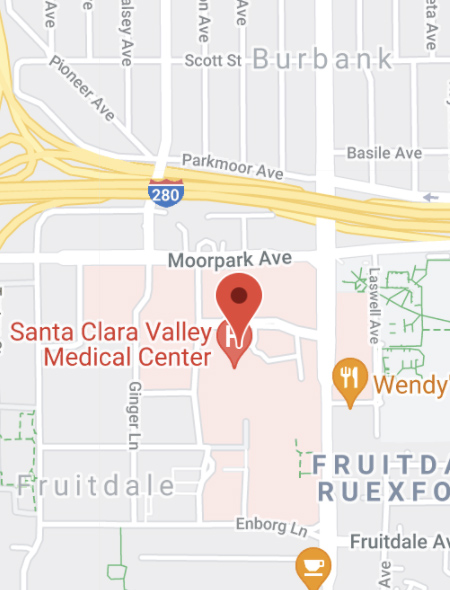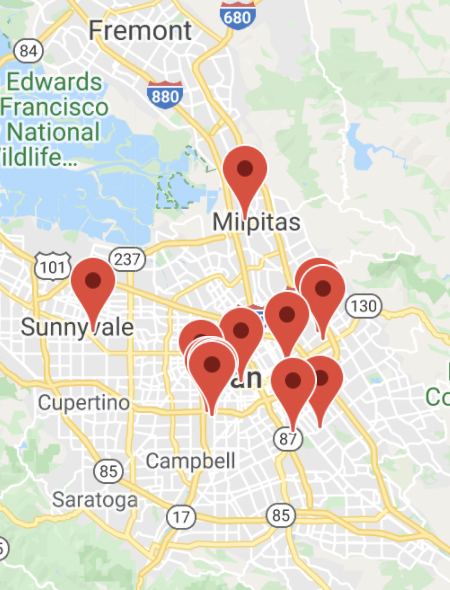REHABILITATION RESEARCH CENTER
Spinal Cord Injury Projects
This project will provide nutrition counseling via FaceTime to individuals with spinal cord injuries who are:
- overweight or obese,
- at least one-year post-injury,
- over 20 years of age,
- proficient in either English or Spanish.
Ninety-six participants will be assigned to two groups (immediate treatment and delayed treatment). Each participant will engage in six telenutrition counseling sessions with a registered dietitian nutritionist over 3 months. Participants will keep a photo journal as part of their counseling and will provide diet recalls, serum blood measures looking at heart disease and diabetes risk, and measurements of BMI, waist circumference, body fat, and blood pressure at various intervals throughout the study. The overall goal for this study is to examine the impact of telenutrition counseling on cardiometabolic health. The study will also study the impact of dietary changes on quality of life and on bowel and bladder function. This project is funded by the National Institute on Disability, Independent Living, and Rehabilitation Research’s Spinal Cord Injury Model Systems program.
For more information on this study, please contact Cria-May Khong at;
[email protected] or 408-885-4177
Study Flyer
Tele-psychology intervention for individuals with spinal cord injury and depression
Psychotherapy provided remotely is called tele-psychology and this study will provide cognitive behavioural therapy (CBT) through Facetime on an iPad to persons with spinal cord injury (SCI) and depression after injury. Half of the enrolled and eligible participants will receive the tele-psychology intervention, while the other half will receive routine care managed by their doctor. Participants in the therapy group will receive 10 tele-psychology sessions over 12 weeks, provided by a study psychologist. The study team will compare results once therapy is completed and then again 12-weeks later to pre-therapy measures between the CBT therapy group and those who receive standard of care instead of CBT, to see if the intervention is efficacious. We hope to show that individuals receiving CBT will have reduced depressive and anxiety symptoms and increased quality of life at 12 and 24 weeks post-baseline compared to individuals receiving usual care.
For more information on this study, please contact Cria-May Khong at;
[email protected] or 408-885-4177
Northern California Spinal Cord Injury Model System
The Spinal Cord Injury Model Systems (SCIMS) National Database is a prospective, longitudinal study funded by the National Institute on Disability, Independent Living, and Rehabilitation Research (NIDILRR) in the U.S. Department of Health and Human Services. The National Database includes about 6% of new SCI cases, and has data on thousands of individuals treated in the United States with SCI since 1970. Our center is one of 19 centers currently doing follow-up research (Form II) in areas of rehabilitation, health & wellness, emotional distress, technology, and re-hospitalization. The purpose of the study is to collect long-term outcomes from individuals who had an SCI, after their discharge from the SCVMC healthcare system. As of June 2020, our center has followed over 2,400 participants, some of whom are up to 45 years post-injury.
For more information on this study, please contact Cria-May Khong at;
[email protected] or call 408-885-4177.
Study Flyer
SCIMS Data Center
SCIMS Facts & Figures
Sistema modelo de la lesión de la médula espinal del norte de california
La Base de Datos Nacional de los Sistemas Modelo de la Lesión de la Médula Espinal (SCIMS, por sus siglas en inglés) es un estudio prospectivo y longitudinal financiado por el Instituto Nacional de la Investigación sobre la Discapacidad, Vida Independiente y Rehabilitación (NIDILRR, por sus siglas en inglés) en el Departamento de Salud y Servicios Humanos de los Estados Unidos. La Base de Datos Nacional incluye cerca del 6 por ciento de los nuevos casos de lesión de la médula espinal, y cuenta con datos sobre miles de individuos tratados en Estados Unidos con lesión de la médula espinal desde 1970. Nuestro centro es uno de 19 centros que actualmente están realizando investigación de seguimiento (Formulario II) en áreas de rehabilitación, salud y bienestar, aflicción emocional, tecnología y rehospitalización. El propósito del estudio es recopilar los resultados a largo plazo de los individuos que tuvieron lesión de la médula espinal, después de que los dieron de alta del sistema de atención de salud del Centro Médico del Valle de Santa Clara (SCVMC, por sus siglas en inglés). A fecha de junio de 2020, nuestro centro ha seguido a más de 2,400 participantes, algunos de los cuales ya han cumplido hasta 45 años después de su lesión.
Para obtener más información acerca de este estudio, por favor póngase en contacto con Cria-May Khong enviando un correo electrónico a; [email protected] o llamando al 408-885-4177.
Centro de Datos de SCIMS
SCIMS Hechos y Cifras de SCIMS
The aim of this feasibility study is to collect information on causes, treatments, and outcomes related to non-traumatic spinal cord injury (ntSCI) as part of a national effort to increase data collection and improve knowledge related to living with a ntSCI. This pilot project specifically will allow us to identify appropriate ntSCI variables to add to the Spinal Cord Injury Model Systems (SCIMS) National Database (NDB), determine study eligibility criteria for ntSCI participants, test SCIMS center’s ability to enroll participants with ntSCI into the NDB, and provide evidence on the incidence and prevalence of ntSCI within the SCIMS. This is an active 6-month feasibility study, currently enrolling eligible and interested participants during their rehabilitation stay to partake in a one-time 20–30-minute survey.
For more information on this study, please contact Michelle Martinez at;
[email protected] or (408) 793-6431
The aim of this study is to collect information related to aging with a spinal cord injury (SCI). This study will allow researchers to understand differences in well-being over a broad range of ages among individuals with SCI.
Participating in this study is voluntary.
There are two parts to this study
For community and SCIMS participants: Participation in this study involves engaging in a one-time online video-based group discussion with other adults who also have a SCI for about 1 hour. This focus group will be audio recorded to facilitate transcription; no images or video will be recorded.
Eligibility for this part of the study includes:
- Being 45 years old or older
- At least 1 year post injury
- Living with a traumatic SCI
- Able to communicate in English
Individuals already participating in the SCI model systems national database study are also able to participate in the second part of the study: Participation in this study involves completing periodic surveys (i.e., an ~40-minute questionnaire by phone, mail, or electronic survey) every year for up to five years.
Eligibility for this study includes:
- Being 36 years old or older
- At least 1 year post injury
- Living with a traumatic SCI
- Able to communicate in English
This study is being done in collaboration between three Spinal Cord Model Systems (SCIMS) centers - Santa Clara Valley Medical Center/Northern California SCIMS, Rancho Los Amigos National Rehabilitation Center/Southern California SCIMS, and the University of Minnesota/Minnesota Regional SCIMS.
For more information on this study, please contact Dr. Elizabeth Pasipanodya at:
[email protected] or 408-649-9756
The purpose of this study is to find out how bowel function affects a person’s quality of life after spinal cord injury (SCI). We also want to learn if there are factors that can be changed to improve bowel function. We want to know if bowel function is related to bladder function. [This study is recruiting individuals who are participating in the SCI Model Systems National Database Study]. A total of 324 people will take part in this study at four rehabilitation centers: Rancho Los Amigos National Rehabilitation Center, Kessler Foundation, MetroHealth Medical Center, and Santa Clara Valley Medical Center.
For more information on this study, please contact Jussely Morfin at;
[email protected] or call 408-793-1819.
This study is closed to enrolment and is currently in long term follow up. The AST-OPC1-01 clinical trial, “A Phase 1/2a Dose Escalation Study of AST-OPC1 in Subjects with Subacute Cervical Spinal Cord Injury”, studied the safety and effectiveness of oligodendrocyte progenitor cells derived from human embryonic stem cells injected directly into the spinal cord of patients with cervical spinal cord injury. Participants were evaluated for neurological improvements for one year post-injection. The safety follow-up will continue for 15 years under the companion study AST-OPC1-02, “A Long-term Follow-up Study of Subjects with Cervical Spinal Cord Injuries Who Received AST-OPC1 in Protocol AST-OPC1-01”.
SCVMC was the first site in the United States injecting 20 million stem cells into the spinal cord of a patient with ASIA A or ASIA B impairments. SCVMC is a leading enrollment site for this national clinical trial.
For more information, please contact Arshad Ali at
[email protected] or 408-885-3963
The TRACK-SCI collaborative is a unique partnership between the VA Palo Alto, Zuckerberg San Francisco General Hospital (ZSFG), UCSF Brain and Spinal Injury Center (BASIC), and Santa Clara Valley Medical Center (SCVMC). This partnership provides an exceptional platform for the discovery and testing of acute, critical care practices that optimize recovery among individuals who have experienced a spinal cord injury. The aim of this collaboration is to provide data for driving evidence-based recommendations and guidelines for the treatment of acute SCI.
For more information, please contact Arshad Ali at;
[email protected] or 408-885-3963.
Brain Injury Projects
Northern California Traumatic Brain Injury Model System
The Traumatic Brain Injury Model Systems (TBIMS) National Database is a prospective, longitudinal study funded by the National Institute on Disability, Independent Living, and Rehabilitation Research (NIDILRR) in the U.S. Department of Health and Human Services. The TBIMS is actively recruiting study participants at multiple centers across the U.S. Its purpose is to assess recovery and outcomes following multi-disciplinary treatment in acute neurotrauma and inpatient rehabilitation. Our center is currently enrolling participants during their rehabilitation stay (Form I) and completing follow-up interviews (Form II) at years 1, 2, 5, and every 5 years after their date of injury. As of June 2020, our center has enrolled over 870 participants and is completing follow-up interviews with participants who are up to 35 years post-injury. In addition to providing direct health care services, the TBIMS centers play an important role in providing high-quality treatment and research serving persons with TBI, their families, and the communities in which they live.
For more information on this study, please contact Jussely Morfin at;
[email protected] or call 408-793-1819.
Study Flyer
TBIMS Data Center
TBIMS InfoSheet
Sistema modelo de la lesión cerebral traumática del norte de california
La Base de Datos Nacional de los Sistemas Modelo de la Lesión Cerebral Traumática (TBIMS, por sus siglas en inglés) es un estudio prospectivo y longitudinal financiado por el Instituto Nacional de la Investigación sobre la Discapacidad, Vida Independiente y Rehabilitación (NIDILRR, por sus siglas en inglés) en el Departamento de Salud y Servicios Humanos de los Estados Unidos. El TBIMS está reclutando activamente a los participantes de estudio a lo largo y ancho de los Estados Unidos. Su propósito es evaluar la recuperación y los resultados después del tratamiento multidisciplinario del neurotrauma agudo y la rehabilitación hospitalaria. En la actualidad, nuestro centro está inscribiendo a los participantes durante su estancia de rehabilitación (Formulario l) y está llevando a cabo las entrevistas de seguimiento (Formulario II) a un año, dos, cinco, y cada cinco años después de su fecha de lesión. A fecha de junio de 2020, nuestro centro ha inscrito a más de 870 participantes y está realizando las entrevistas de seguimiento con los participantes que han cumplido hasta 35 años después de su lesión. Además de prestar los servicios directos de atención de salud, los centros de TBIMS desempeñan un papel importante en proporcionar tratamiento de alta calidad e investigación atendiendo a las personas con lesión cerebral traumática, a sus familiares, y a las comunidades donde ellos viven.
Para obtener más información acerca de este estudio, por favor póngase en contacto con Jussely Morfin enviando un correo electrónico a; [email protected] o llamando al 408-793-1819
Stroke Projects
This study is now closed to enrollment. The main purpose of this multi-site research study, sponsored by Neofect and led by the Stanford Stroke Center, is to examine the implementation of the Smart Glove in rehabilitation for stroke survivors and to see how effective the Smart Glove is at helping to improve hand and arm function as well as quality of life post stroke. The Smart Glove is a plastic glove that straps to the affected hand and is connected to a computer to play games that mimic hand rehabilitation exercises. Movement is detected by the sensors in the glove and is recorded by the computer.
The target for enrolment is 80 participants across four sites. Participants are recruited from the inpatient rehabilitation units at SCVMC shortly after their stroke. Participants are then randomly assigned to receive either usual care or usual care plus the Smart Glove for the duration of this 24-week study. Participants who do not receive the Smart Glove during the study are offered use of a Smart Glove for six weeks following their completion of the study.
For more information, please contact Arshad Ali at
[email protected] or 408-885-3963.



